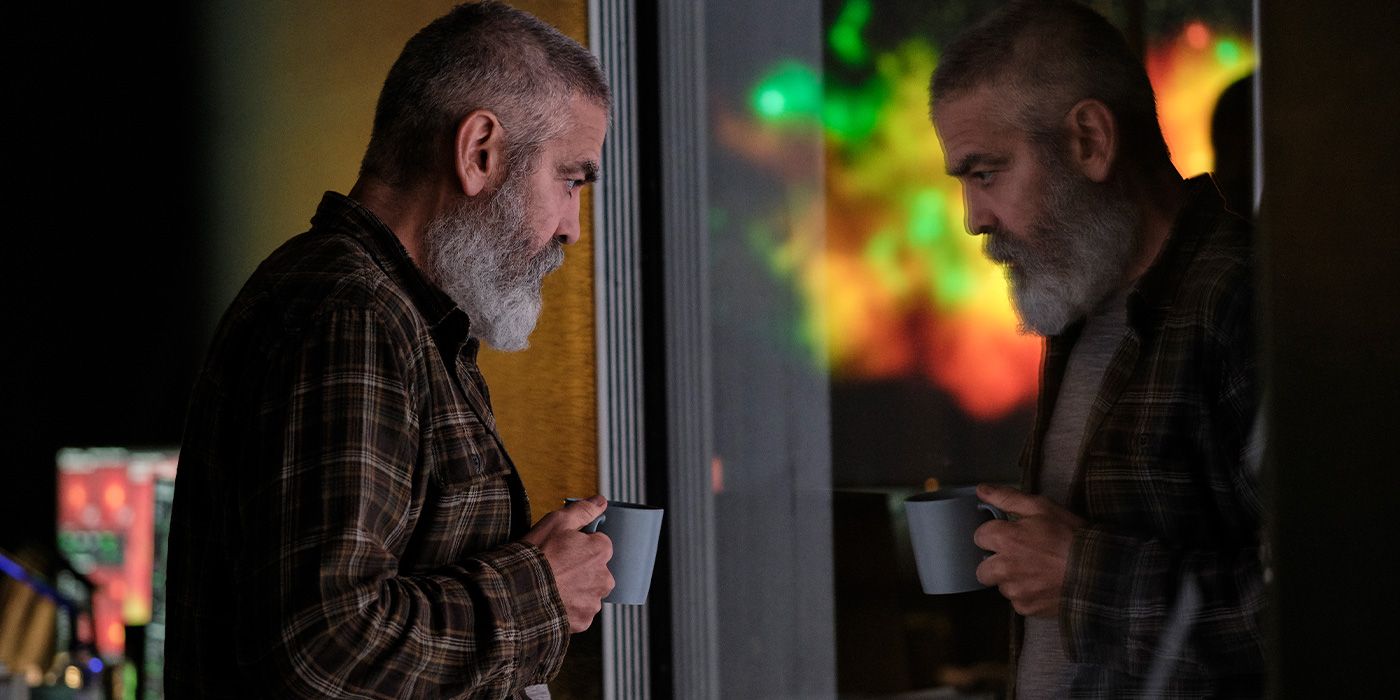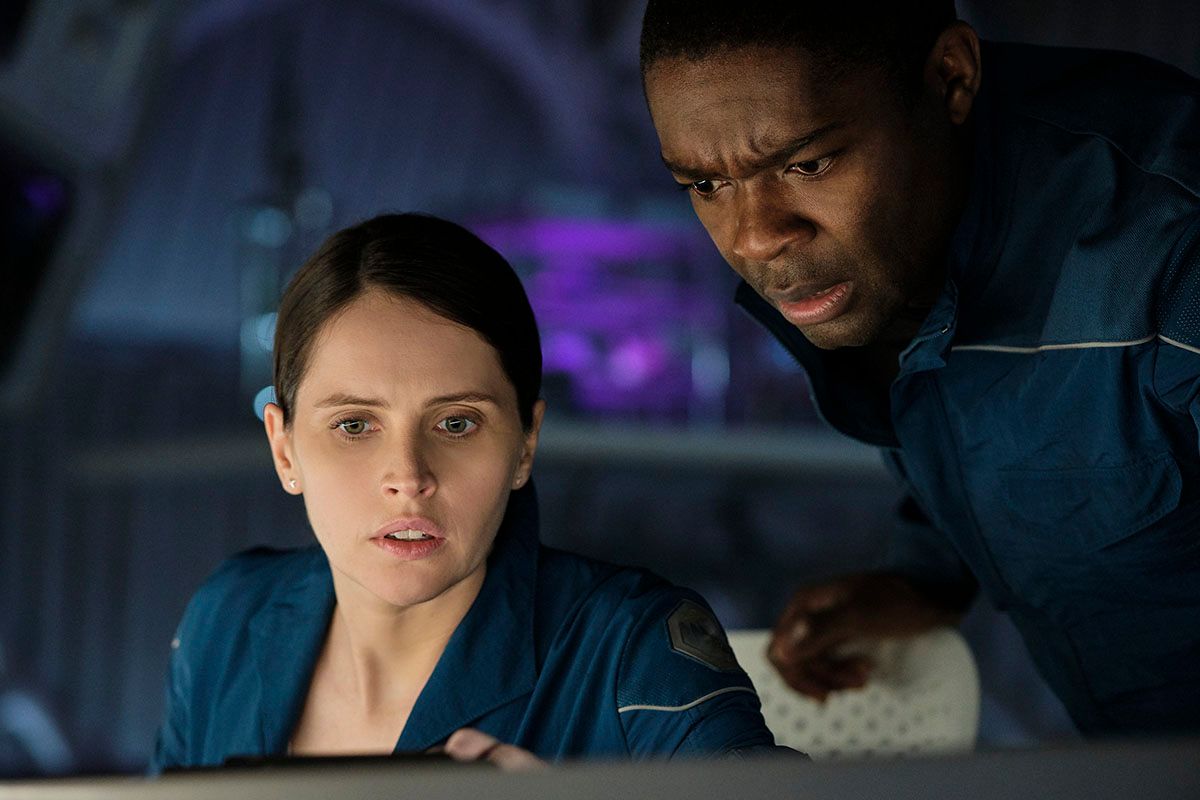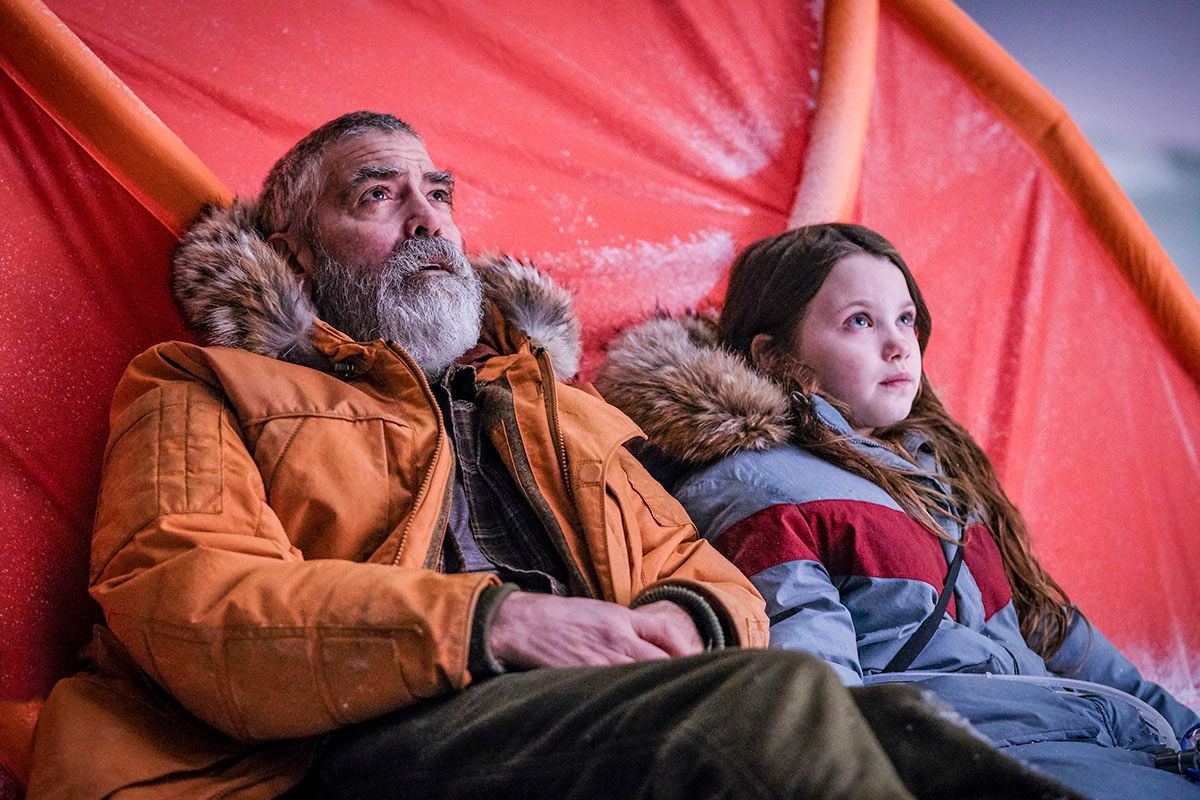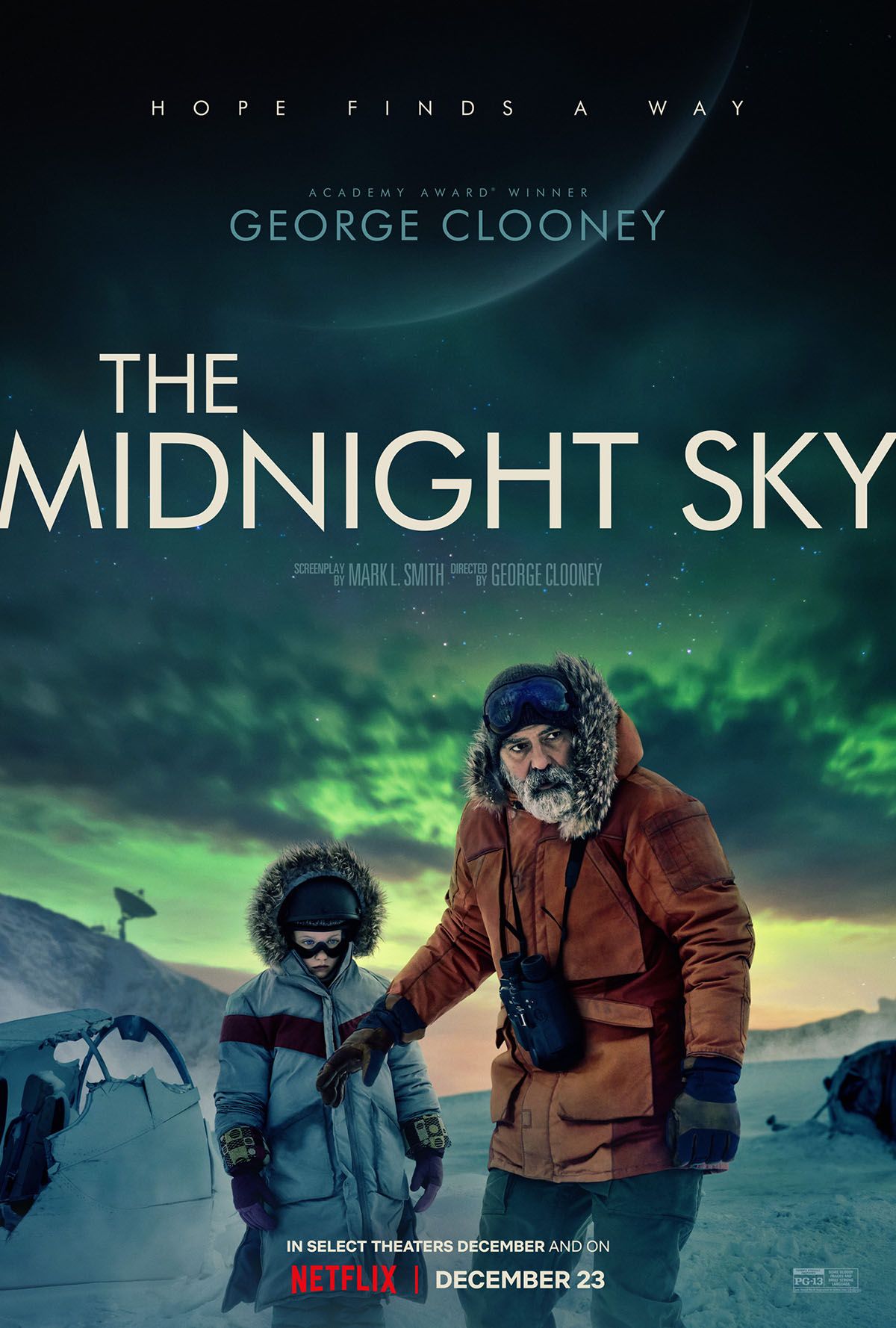After becoming one of the most beloved film actors in Hollywood by the early 2000s by wisely teaming with Steven Soderbergh on movies like Out of Sight and Ocean’s Eleven, George Clooney stepped behind the camera for 2002’s darkly comic and surprisingly deft Confessions of a Dangerous Mind. He then followed it up with the Oscar-nominated Good Night, and Good Luck. and the slight-yet-charming Leatherheads. But then Clooney’s directing skill started to fail him and his directorial efforts have diminished in strength, usually resulting from a muddled tonality that never seems completely certain in the kind of story being told. That problem continues to dog Clooney with his latest effort The Midnight Sky. What should be a dark, unforgiving sci-fi at the end of the world instead plays as schizophrenic as the stakes never make much sense and the script struggles with its dual storylines of survival. The film tries to make a stab at exploring the importance of family at the end of the world, but even here Clooney stumbles with a saccharine and unearned reveal that only makes the film more convoluted.
Set in the year 2049 and “three weeks after the event”, which is an apocalyptic occurrence that’s some undefined mashup of plague and nuclear fallout, scientist Augustine (Clooney) has resolved to live out his final days in the Arctic Circle’s Barbeau Observatory dying from a terminal illness while the rest of the world dies from “the event.” However, his plans are thwarted when he not only discovers a young girl (Caoilinn Springall) still living at the outpost, but also that the spaceship Aether is returning from its two-year mission exploring a habitable environment on one of Jupiter’s moons. Augustine feels he must warn the spaceship off, and so resolves to take the young girl and make their way to a better satellite as crewmembers Adewole (David Oyelowo), Sully (Felicity Jones), Maya (Tiffany Boone), Sanchez (Demián Bichir), and Mitchell (Kyle Chandler) obliviously make their way back to an uninhabitable home.
I don’t want to spoil anything other than to say that as the narrative unfolds, Augustine’s plan doesn’t make a lot of sense, and it’s only after a major reveal that his motives become clear and almost completely divorced from their original intent. It’s just poor plotting that’s struggling to serve a story about Augustine’s lifelong regrets and an attempt to make amends by giving his final days of life to preserve some semblance of humanity in the face of Armageddon. In more competent hands, this isn’t a bad story, and as far as a performance goes, Clooney remains a terrific actor. But his performance is in service of a weak story that stumbles between life-and-death stakes on Earth and a spaceship full of people who don’t know that there are life-and-death stakes.
The Midnight Sky should be a much sadder film given its story, and yet more often than not it simply feels disjointed and bizarre. When Mitchell is sitting with a hologram of his family eating breakfast, it should feel completely tragic and depressing since we know that his family is probably dead, and they’re not waiting for him back home. But since we never learn much about Mitchell beyond his job on the spaceship, there’s not much pathos beyond a general feeling of, “Oh, that’s sad.” The same goes for the other crew members, and even to some extent Augustine, who needs the assistance of flashbacks to explain to the audience why he’s burdened with regrets.
Watching The Midnight Sky, I was reminded of recent sci-fi films, and one that came to mind was 2016’s Arrival. Like The Midnight Sky, Arrival deals with deep loss, grief, and regret within the bounds of a science fiction narrative, but you can see the clear mastery of Denis Villeneuve in that film, and Clooney doesn’t have that. The cinematography in The Midnight Sky doesn’t express remoteness and even the score from the usually reliable Alexandre Desplat feels out of tune. It’s a movie about what makes life worth living in the face of certain death, but Clooney’s direction fails him as we never feel that impact. It’s a movie that, more often than not, shies away from tragedy and is afraid to look directly at death, and this circumspect approach saps the film of any power it may have had.
Given that this is the first film Clooney has made since becoming a father, it’s kind of sweet that he wanted to tell a story about the lengths parents will go for their children, especially when they had previously devoted their life to work instead of family. But as a director, Clooney’s skills haven’t developed and evolved to tell this kind of story with the kind of gravitas and empathy it requires. His motives are sound, and his themes are worthwhile, but the execution just isn’t there. The saddest thing about The Midnight Sky is realizing that Clooney’s work as a director peaked over a decade ago.
Rating: C-




